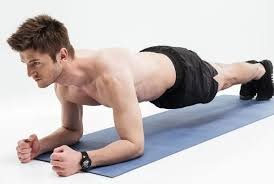Introduction
Starting a fitness journey could be quite exciting and, at the same time, overwhelming. Most beginners find it difficult to know where to start, set realistic goals, and remain motivated. However, with the right guidance, you can lay the correct foundation for long-term success, improved health, and increased confidence in your life. A 10-stop guide to essential fitness tips for beginners, with simple yet very effective advice to get you feeling prepared, confident, and motivated as you begin your journey toward a healthier lifestyle. Whatever the goal may be—whether it be gaining strength, improving endurance, or simply getting active—the following will set you up for success from day one.

Set clear and achievable goals
Goal setting is the basis of a successful fitness journey. First, determine what you want to achieve: increasing strength, losing weight, finding more energy, or simply becoming healthier in general. Based on your answer, make them very specific and measurable; for instance, aim to walk 10,000 steps per day or complete a 5K run/walk within three months. Reaching these smaller steps toward bigger goals keeps you motivated, and you will be able to celebrate your progress along the way.
Ease in and Gradually Increase
The initial excitement of beginners often makes them overzealously eager to jump into very intense workouts. However, doing too much too soon may just result in burnout or injury. Therefore, start with moderate exercises that are at a level to gradually increase in intensity and time with your improved fitness. For example, start with 15-20 minute sessions and add some time each week. Such slow build-up guarantees a long-term fitness journey.
Prioritize Good Form and Technique
Proper form, while exercising, is important for being effective and also in preventing injury. For most novices, this includes the learning of basic movements: correct posture when doing squats, proper form when lifting weights, or alignment during yoga. The use of proper form yields better results and sets a good foundation for more complex moves in the future.
Create a Balanced Schedule
A well-rounded fitness plan includes elements of cardio, strength, and flexibility exercises. Cardio improves cardiovascular health and stamina; strength training builds muscle, while flexibility work—like stretching or yoga—keeps your body limber and reduces the risk of injury. Try to mix and match all three to cover all aspects of fitness, keeping your workouts varied and fun.
Incorporate Strength Training and Cardio
A good complete fitness plan will incorporate strength and cardio exercises: strength training will help you tone your muscles and boost your metabolism, while the cardio exercises will enhance endurance and heart health. So you could have, say, cardio days and strength days, or you can do everything all in one using circuits. Balancing these types of activities will not only make you strong and healthy but will also keep the workouts exciting.
Favor Consistency Over Intensity
Consistency is the key to long-term success. Rather than a focus on extreme workouts, stress keeping a regular schedule where even some of the sessions are light or of short duration. Consistent, moderate exercise will yield much better and more sustainable results than sporadic bursts of high-intensity training. Building habits of showing up regularly creates a lifelong foundation of fitness.
Stay Hydrated and Fuel Your Body
Water and nutrition are very important parts of a fitness routine. Staying hydrated will help maintain energy levels and prevent fatigue, while balanced meals will provide the necessary nutrients for performance and recovery. Prioritize water intake throughout the day and focus on a diet rich in lean proteins, whole grains, fruits, and vegetables to fuel workouts and assist in recovery.
Listen to Your Body and Rest When Needed
Rest is just as important as exercising. Overworking can cause injury and prevent progress, so rest days should be taken seriously. During these days, your muscles will repair and grow, which will help you avoid fatigue and enhance performance. Mostly, listen to your body. If you feel sore, tired, or run down, rest or move to a lighter workout.
Track Your Progress for Motivation
Keeping track of your fitness keeps you motivated and informed about what works. Include your workout log, noting changes in strength, endurance, or how you feel, and celebrate small victories like increased weight lifted or longer jogged distances. This habit not only increases motivation but also allows you to adjust your routine as you see patterns in your progress.
10. Find Fun Activities to Keep Them Involved
It is always easier to keep active if you are having fun. Try dancing, hiking, swimming, or cycling in your quest to find what works best for you. Fun workouts will help you avoid boredom and create long-term fitness habits. The more you enjoy the activities, the greater the likelihood that you will stick to them and make fitness a way of life.
Conclusion
Starting out on a fitness journey as a complete newbie can be so fulfilling—it just changes both the body and mind. The biggest tips to get this right from the very beginning would be clear goals, starting very slow, focusing much on proper form, and balance in your routine. Remember, consistency is key, so keeping your body listened to and not burnt out keeps you motivated.


